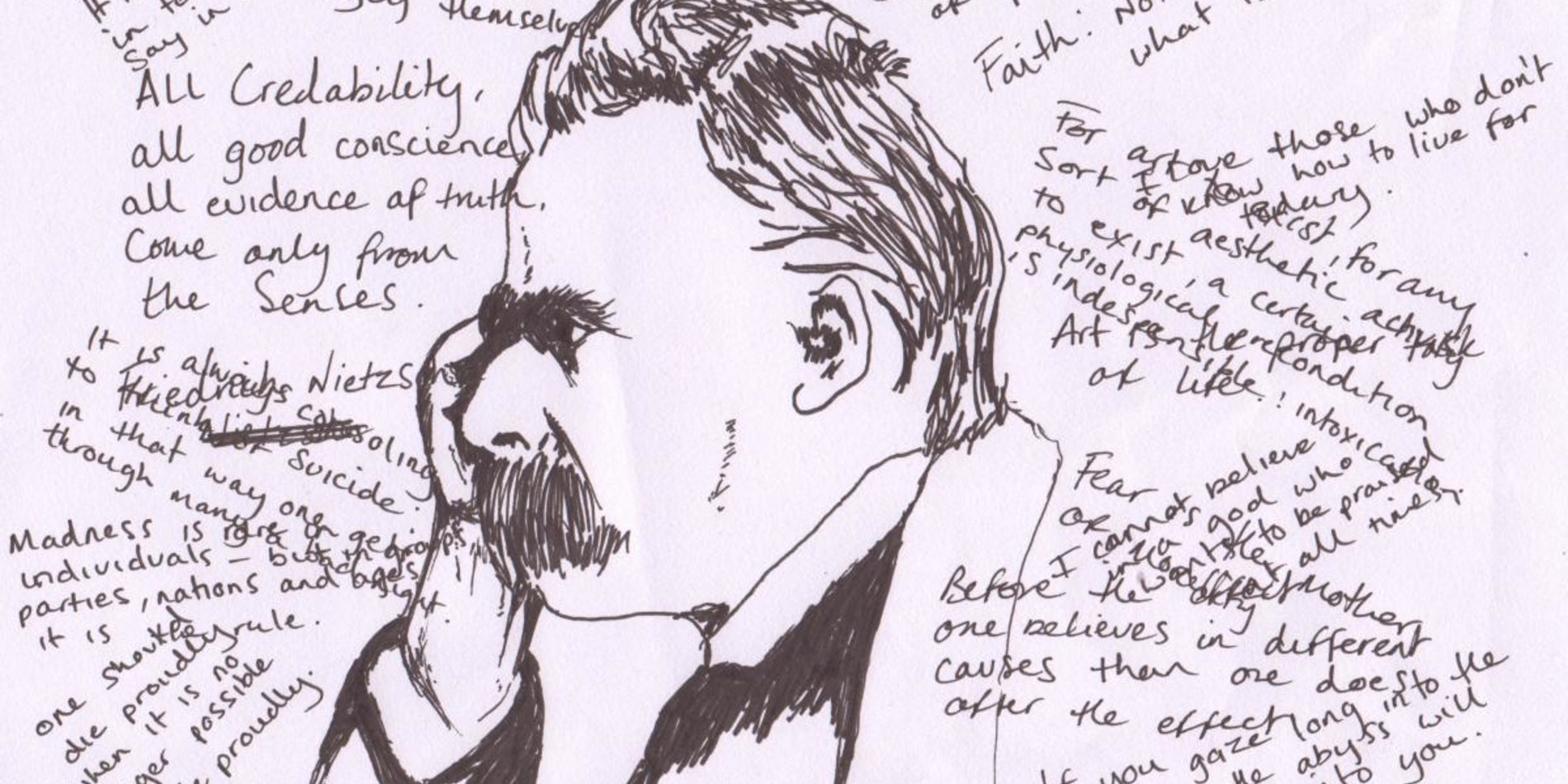GERMAN 57N: Nietzsche and the Search for Meaning
General Education Requirements
Not currently certified for a requirement. Courses are typically considered for Ways certification a quarter in advance.
Course Description
Friedrich Nietzsche is one of the most controversial thinkers in history. Many of us have heard his declarations of the death of God, the arrival of the Superman, and the need to live beyond good and evil. But what, beyond such catchphrases, did Nietzsche actually teach? And what significance might the work of this nineteenth-century German philosopher hold for us today?
In order to answer these questions, we will read some of Nietzsche’s writings and place them in their historical context. Together, we will wrestle with questions such as: What is Nietzsche’s conception of the self? What is the relation between reason and health for Nietzsche? How do his ideas change over time? What, for Nietzsche, is the meaning of our lives, how are we to find it, and how are we to live it?
The emphasis in this course will be on close reading, brief response papers, and lively discussion (with classmates and one-on-one with the professor) rather than on lengthy essays or exams. No knowledge of German is necessary.
Meet the Instructor: Matthew Smith

"I am a professor in two departments here at Stanford: German Studies and Theater and Performance Studies (TAPS). My fascination with Nietzsche began in college, when I discovered his early book The Birth of Tragedy—a book that explored art, myth, and life with an intensity at once passionate and analytic, and unlike anything I had encountered before. Subsequently I devoted much of my scholarly life to understanding Nietzsche’s influences and his age, from the philosopher Arthur Schopenhauer to the composer Richard Wagner to the playwright August Strindberg. I look forward to introducing a new generation of students to this provocative, enigmatic, troubling, and troublesome artist-philosopher."



